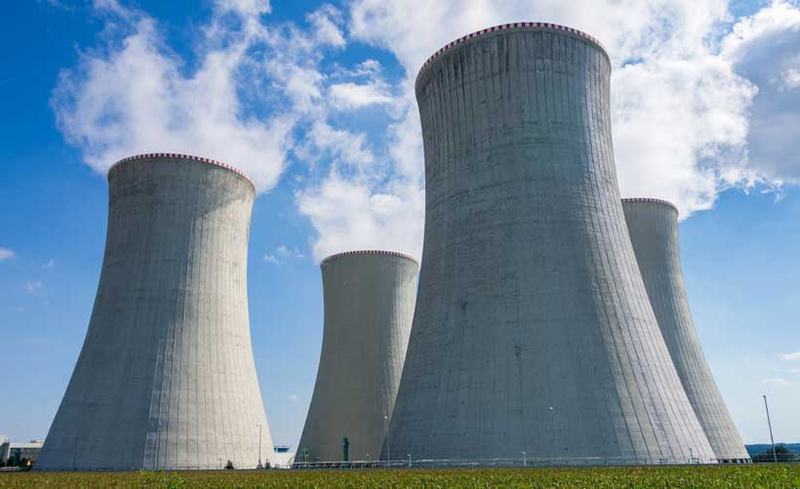Nuclear Energy Returns to the Global Stage — What It Means for Europe and Greece

This article explores the rise, fall, and resurgence of nuclear power and examines what the nuclear comeback means for Europe and Greece in particular. Yet, without nuclear energy, it will be extremely difficult for Europe to meet its climate targets, especially while maintaining energy security and industrial competitiveness.
Why Nuclear Is Back on the Table
Today, nuclear energy is experiencing a resurgence. This development, however, is not without historical precedent: in the early 1970s, the oil crisis compelled many industrialized nations to diversify their energy sources, resulting in substantial investments in nuclear power. The current nuclear resurgence is driven by three overlapping factors. First, the push to reduce greenhouse gas emissions has created a renewed focus on low-carbon energy sources. Nuclear power produces virtually no emissions during operation and is well-suited to provide constant, reliable electricity. While renewables like solar and wind are essential, they are variable and depend on weather conditions. Nuclear energy can provide stable baseload power, reducing reliance on fossil fuels during periods of low renewable output. Second, electricity demand is increasing rapidly, particularly in emerging markets and in digital ecosystems. Data centers, electric vehicles, artificial intelligence, and cryptocurrency mining all require vast amounts of electricity. By 2029, the number of connected devices worldwide is projected to reach 39 billion. This is putting pressure on national grids and creating demand for clean, round-the-clock energy sources. Third, energy security has become a top priority for many countries following the wars in Ukraine and the Middle East, rising energy prices, and tensions in global supply chains. Governments are increasingly interested in domestically produced energy that is secure from geopolitical disruptions. Nuclear power fits perfectly this bill.
Nuclear power plants are renowned for their reliability and boasting capacity factors exceeding 90%. This high level of consistency makes them an attractive option for data centers that require stable and constant power supplies. Electricity consumption by data centers, the penetration of AI, and the cryptocurrency sector will all together double by 2026. Massive investments in energy-intensive data centers and artificial intelligence (AI) have increased energy demand. According to the United Nations Conference on Trade and Development (UNCTAD), global energy consumption associated with Bitcoin mining increased 34-fold between 2015 and 2023, reaching 121 terawatt hours (TWh) per year, equivalent to twice the electricity consumption of a country like Greece or Belgium. At the COP28 climate conference, 22 countries, including the U.S., France, and the U.K., pledged to triple their nuclear capacity by 2050. According to the International Energy Agency (IEA), meeting net-zero goals could require up to 812 gigawatts of nuclear power globally and over $4 trillion in investment.
Nuclear power is also becoming a key part of global geopolitical competition. Countries are not only building nuclear capacity for domestic use, but they are also exporting their technology, building alliances, and competing for influence in the energy space. While nuclear energy has long been controversial, recent advances in safety, design, and scalability are changing the conversation. Small Modular Reactors (SMRs), which are more affordable and quicker to deploy than traditional reactors, are at the center of this new wave of nuclear momentum. Governments and energy companies are now reconsidering how nuclear power can complement renewable energy sources and help build a safer, stable, and low-emissions energy future.
Europe’s Nuclear Path and Greece’s Opportunity
The European Union is divided on nuclear power. France, Hungary, and Poland are pushing ahead with nuclear expansion. Germany and Austria remain firmly opposed. Yet, without nuclear energy, it will be extremely difficult for Europe to meet its climate targets, especially while maintaining energy security and industrial competitiveness. For Greece, the nuclear comeback presents a unique opportunity. Historically, Greece was among the first European states to explore nuclear technology, acquiring a research reactor from the United States in 1961 for the Athens-based Demokritos research center. However, due to internal political inertia, the country’s nuclear program was never fully implemented, resulting in the dispersion of a highly skilled scientific workforce. The Demokritos reactor was officially dismantled in 2024. Given today’s geopolitical and technological landscape, Greece must now integrate nuclear energy into its long-term energy strategy. The Greek prime minister has, since early 2025, indicated his government’s willingness to move along this path. This requires the establishment of a modern regulatory and institutional framework, along with a supportive ecosystem to ensure safe, efficient, and forward-looking deployment.
Although nuclear energy can be available 24/7, 365 days a year, regardless of weather conditions, it produces zero emissions. However, the rapid expansion of solar parks in Greece has led to surplus electricity generation during periods of low demand, highlighting the lack of large-scale storage technologies. Meanwhile, the development of submarine cable interconnections between the Aegean and Ionian islands could help redistribute energy more effectively. For countries like Greece, with local electricity needs not exceeding 9 GW, nuclear energy may only become viable if SMR technology is paired with advanced storage systems to boost export capacity in a highly competitive European market. Perhaps most strategically, Greece’s shipping industry stands to benefit from nuclear innovation. Greece’s maritime industry, which controls roughly 20% of the global commercial fleet, is exploring SMR propulsion as a strategic solution for decarbonizing long-haul shipping. Nuclear-powered vessels offer extended operational autonomy, reduced fuel costs, and zero carbon emissions, making them an attractive alternative to conventional propulsion systems. Developing a regulatory framework, investing in port infrastructure, and working with international partners would be essential next steps. To sum up, integrating SMRs into both the national grid and maritime transport could position Greece as a leader in European clean energy innovation while reinforcing its energy security and industrial competitiveness.
Modern Diplomacy - Energy - July 30 2025
Authors: Yannis Bassias and Athanasios Platias